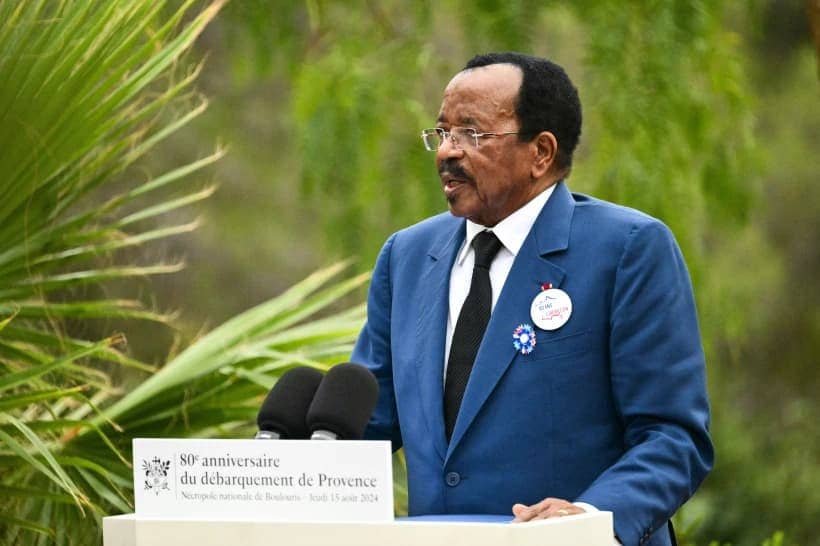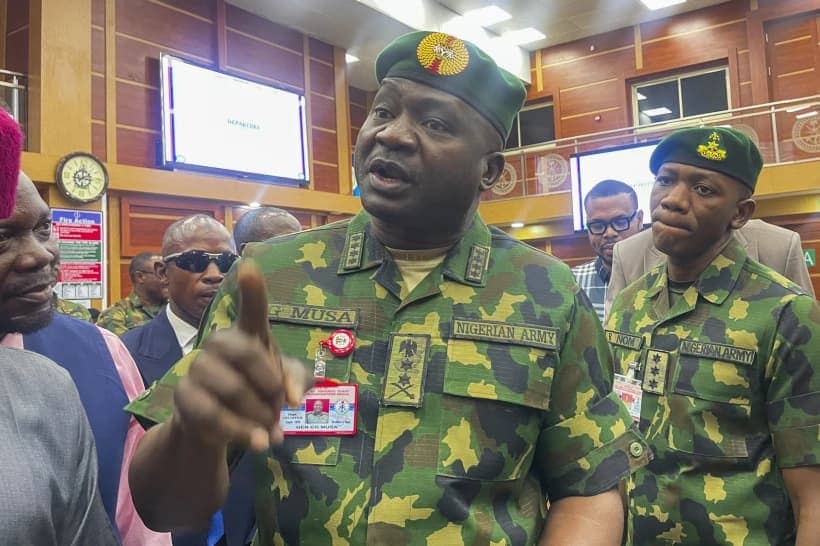ROME – Archbishop Ignatius Kaigama, one of Nigeria’s most authoritative Catholic prelates, has said the start of a new year ought to mark a turning point for the troubled nation, with the focus placed on ending ethnic, political, and religious divisions, and working toward what unifies and is beneficial for all.
Speaking during his New Year’s Day homily at Our Lady Queen of Nigeria pro-cathedral in Abuja, Kaigama said that in the new year, “God is inviting us to set our mind on things that are above, not on earthly things, to live good and holy lives and each of us should consider the other more important than ourselves.”
“This is a lesson we need to imbibe if we must become a great nation. God’s plan for us is peace, not war,” he said.
Referring to the general instability the country faces, Kaigama said that the many economic, political, and religious crises Nigeria is experiencing are the result of thinking “we are better than others or that our tribe or religion or political party is the best.”
“With this frame of mind, we promote individual or sectional interests instead of what benefits all,” he said, adding, “We need a new beginning. We need to expand our horizon.”
“He or she who loves not the neighbor is living in darkness,” he said, insisting that tribal, religious, or political prejudices “are blinding, crippling and poisoning cordial relationships and destroying trust among Nigerians.”
Africa’s most populous nation, Nigeria is currently in the throes of widespread instability linked to both political and economic instability, which the COVID-19 coronavirus pandemic has exacerbated, as well as ongoing security concerns in a country where Islamic terrorism threatens the fabric of peaceful society.
Nigeria currently faces a recession as a result of COVID-19. As the largest oil producer in sub-Saharan Africa, it has been badly impacted by the fall in oil prices since the pandemic erupted. National currency has been devalued, causing a jump in inflation that could cause some five million Nigerians into poverty in coming months.
For 2021, the country has approved a budget of 13.6 trillion Naira ($34,298,460) to help fuel economic recovery.
Yet in addition to its economic woes, Nigeria also faces consistent ethnic and religious conflict, largely between militant Islamic extremists in the north and its Christian population, which resides largely in the south.
President Muhammadu Buhari has been sharply criticized for not doing enough to end a spate of kidnappings and murders that have gripped the nation, largely carried out by the radical Islamic group Boko Haram, and the Muslim Fulani herdsman, who have attacked Christian villages in search for grazing territory for their cattle.
On Jan. 1, the same day Kaigama issued his appeal for peace and national renewal, the Archdiocese of Owerri in southeastern Nigeria announced the release of Bishop Moses Chikwe, an auxiliary for the archdiocese, and his driver, who had been abducted at gunpoint Dec. 27.
A few days earlier, a priest named Valentine Oluchukwu Ezeagu was taken while en route to his father’s funeral in Nigeria’s southeastern Anambra State, and was released the following day.
On Nov. 22, a priest in Kaigama’s own archdiocese, Father Matthew Dajo, was abducted and released after ten days in captivity.
These are only the latest examples of kidnappings and even murders of Church officials that has plagued Nigeria for years, not all of which have a happy ending.
A special report from the International Society for Civil Liberties and Rule of Law (Intersociety) released in March found that “no fewer than 20 clergymen including at least eight Catholic Priests/Seminarians were hacked to death in the past 57 months and not less than 50 abducted or kidnapped.”
The U.S. State Department earlier this month categorized Nigeria as among the worst countries in the world when it comes to religious freedom.
Nigeria’s Catholic bishops have consistently called on Buhari to take greater action, saying in a Oct. 1 statement that “It is just unimaginable and inconceivable to celebrate Nigeria at 60 when our roads are not safe; our people are kidnapped, and they sell their properties to pay ransom to criminals.”
In his homily, Kaigama noted that notions of prejudice also divide the Christian population in Nigeria, where interdenominational tensions are also a problem. These prejudices, he said, were “injected” by the missionaries who brought the Christian faith to Nigeria and must be eliminated.
“Only honest and loving interaction and an objective study of the history of the Church will bring greater understanding and thus create grounds for closer collaboration; otherwise, denominations will carry on with inherited prejudices which affect Christian unity, and we will continue to see one another in negative light and even becoming very uncharitable to ourselves,” he said.
Kaigama insisted that the same thing is true for Christianity’s relationship with Islam and adherents to traditional African religions.
“We must not quarrel, compete, argue and fight dirty, verbally and physically, over religion,” he said, urging Christians in Nigeria to instead “try to outdo one another in living out the edifying values of our respective religions.”
He asked that as the new year begins, God would grant peace to Nigeria, “so that we can have the desired social transformation; a transformation that helps us to value every Nigerian and not to treat one another with religious, ethnic and political bias.”
He voiced hope that the new national budget for 2021 would contribute to bettering security conditions and reduce poverty, but cautioned that for this to happen, “corruption, which has stoutly and consistently stood in the way of our progress in this country, must first give way.”
Kaigama urged faithful in Nigeria to use the new year to focus on what is good, rather than deepening divisions by contemplating how to “destroy another person or pull down anyone.”
“We should ask for a new and better way of being Nigerians, translating our faith convictions into good actions, beyond external rituals, for faith without good works is dead,” he said, urging faithful to ask themselves, “Am I the person who contributes to society positively? Am I the person God wants me to be? Do I care about others or am I self-centered or narcissistic?”
“Today, dangers come from all sides. We must pray and watch,” he said, and called for security personnel to be better equipped with necessary technology for both gathering intelligence and preventing crime. He also urged citizens to take more safety and security precautions.
Kaigama encouraged faithful to “hold each other’s hands” so that as Nigerians, they can “climb the highest hill, and prove those wishing our disintegration as a nation wrong.”
“Love is the cost,” he said, adding, “let us march into the New Year, confident that the Lord of history will not abandon us. Let us follow the guiding star like the wise men…That star will lead us to Jesus, the prince of peace.”
“May 2021, and indeed the years to come, be happy, peaceful and fruitful for all of us,” he said.
Follow Elise Ann Allen on Twitter: @eliseannallen














